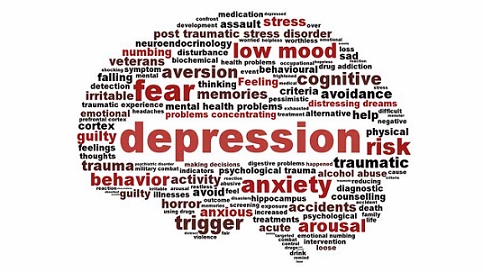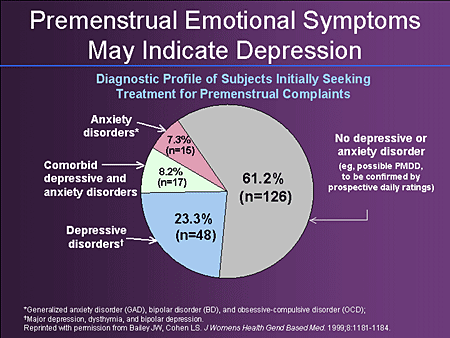What is the best medication for anxiety and depression? Can depression or anxiety cause flu-like symptoms? What to do when depression and anxiety mix?
Other symptoms of a panic or anxiety attack can include feelings of losing control, trouble breathing or feeling as if you’re. Perhaps the anxiety disorder best known for severe effects is panic disorder. A panic attack can create severe anxiety symptoms in a matter of minutes and patients are often rushed to the Emergency Room because they feel they are dying. The incidence of developing depression in addition to an anxiety disorder is high — almost half of all people with major depression also suffer from severe and persistent anxiety, Connolly notes. Depression is a common but serious disease that ranges widely in severity.
If you have a milder case, you may struggle with symptoms that include sadness, irritability, anger, and fatigue that. For many people with depression, symptoms usually are severe enough to cause noticeable problems in day-to-day activities, such as work, school, social activities or relationships with others. Some people may feel generally miserable or unhappy without really knowing why.

Depression (major depressive disorder or clinical depression) is a common but serious mood disorder. It causes severe symptoms that affect how you feel, think, and handle daily activities, such as sleeping, eating, or working. To be diagnosed with depression, the symptoms must be present for at least two weeks. Anxiety disorder due to a medical condition includes symptoms of intense anxiety or panic that are directly caused by a physical health problem. Generalized anxiety disorder includes persistent and excessive anxiety and worry about activities or events — even ordinary, routine issues.
The worry is out of proportion to the actual circumstance. Anxiety and depression can present themselves in many different ways. Although they are called “mental illnesses,” our minds and bodies are interconnecte making physical symptoms a common experience for people struggling with anxiety and depression. Symptoms include hypersomnia, heaviness in the limbs, and social anxiety.
If you suffer from catatonic depression , you are most likely experiencing motor problems and behavioral issues. You might be immobilized or have involuntary movements. The symptoms of anxiety can be hard to detect. But in some cases, PMS symptoms like irritability and anxiety can become severe. Depression symptoms may gradually progress from the mil such as choosing to stay home to watch TV instead of going out with friends, to the more severe , such as thoughts of suicide.
The co-occurrence of an anxiety disorder with bipolar disorder can worsen the symptoms and course of each disorder, so it’s essential that both are treated. Sometimes severe mood episodes, extreme irritability, and other pronounced symptoms of bipolar disorder mask underlying obsessive thoughts, compulsions, worries, or other anxiety symptoms. Feelings of anxiety and worry about being around others can evolve into feeling down in general, particularly if you isolate yourself or stop participating in activities. At the same time, certain symptoms of depression can also make you fear being around people for a myriad of reasons.

Symptoms of depression and anxiety often co-occur in certain disorders. In fact, according to the National Institute of Mental Health, major depression often accompanies panic disorder and other anxiety disorders. While depression and anxiety have distinct clinical features, there is some overlap of symptoms. When the two disorders occur together—as they frequently do—life complications multiply and treatment requirements become more complex. Basically you can feel all of the physical symptoms related with anxiety disorder with a few added mental symptoms.
According to the National Institute of Mental Health, nearly of all of those individuals have anxiety that can best be classified as severe. In this form of depression , severe mood swings, anxiety , and negative thoughts present themselves in the week prior to the start of menstruation and dissipate once the menstrual period begins. Depressive symptoms are severe enough to negatively impact interpersonal relationships and interfere with daily activities.

Some of these symptoms , such as weight changes, fatigue, or even forgetfulness can be caused by the cancer itself and its treatment. In models using anxiety as the dependent variable, relative to the Unplugged cluster, the Wired cluster had the greatest odds of moderate to severe anxiety symptoms (AOR = CI = –), followed by the. At its mildest, you may simply feel persistently low in spirit, while severe depression can make you feel suicidal, that life is no longer worth living.
Most people experience feelings of stress, anxiety or low mood during difficult times. A low mood may improve after a short period of time. Understand how anxiety can greatly affect.
Below are the main anxiety symptoms in women that indicate extreme anxiety. Exhaustion and chronic fatigue. Women get more anxious when they have more stressing responsibilities at hand. Severe depression is a nasty illness and can have unwanted consequences.
You may not realize that you have severe depression , so it’s crucial to be able to recognize its signs and triggers. The link between anxiety symptoms and depression. Many people with anxiety disorders also suffer from depression at some point.
No comments:
Post a Comment
Note: Only a member of this blog may post a comment.